Technology: Tech Games – why Rio 2016 is being hailed as the first Social Media Games in history
The Rio 2016 Games were hailed as the first Social Media Games in history. Tom Walker looks at how the biggest tech players embraced the Games and influenced the way the sporting action was consumed
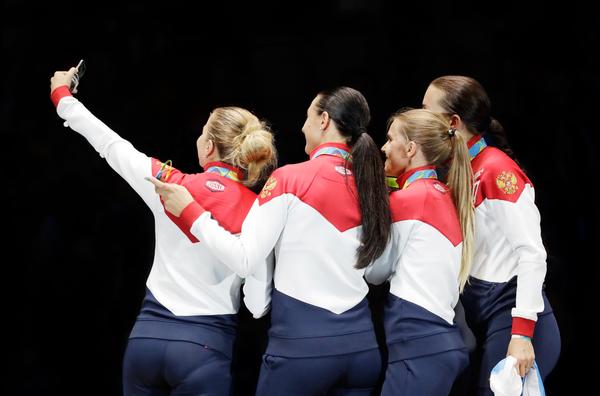
Four years is a long time in technology and since the London Olympic Games, the social media landscape has changed dramatically. Google, Twitter and Facebook still rule, but have had to adjust by adding video and other functionality to keep up with a new breed of social media platforms which have popped up since 2012.
It’s been easier for existing market leaders to absorb newcomers than compete with them: live video streaming app Periscope, founded in 2014, gained traction and was acquired by Twitter in 2015, while Facebook bought photo sharing app Instagram.
In total, a staggering 1 billion more people have gained access to the internet since 2012 – mainly in developing or emerging countries. Looking at internet traffic stats, it’s clear what has driven this growth – mobile internet usage, which by itself now exceeds the amount of total internet usage in 2012.
The emergence of video, live streaming and picture sharing – made possible by advances in hardware and 4G networks – means the way fans follow live sport away from events they attend is rapidly changing. There’s now less sitting in front of the TV and more use of mobile devices while out and about.
While this changing tech landscape offers opportunities, it also poses threats to broadcasters who invest huge sums securing rights with the aim of getting a return via advertising revenues. These fears were summarised ahead of Rio 2016 by Steve Burke, CEO of NBCUniversal – the US broadcaster which paid US$12bn (€11bn, £9bn) for Olympic TV rights.
“We might wake up someday and find ratings down,” Burke said. “If that happens, my prediction would be millennials were in a Facebook or Snapchat bubble and the Olympics came and went and they didn’t realise.”
The way viewing habits have changed was in clear evidence during the Rio 2016 Olympic Games. Digital research company eMarketer estimates that more than 2.85bn video streams of Olympic action were viewed online over the duration of the Games – trebling the number seen during London 2012. These streams varied from those posted by official broadcasters to those uploaded by fans, athletes and people working at the Games, such as journalists.
How then, did the leading tech companies approach the Olympics and embrace changes in the way people consume sports content? We look at how they innovated to captivate and engage fans.
The micro-blogging platform enabled fans to follow country-specific content
Twitter had a dedicated section in its “moments” function which featured content and stories unfolding during the Games. The moments function was geographically tailored for Twitter’s primary markets – such as Australia, France, Japan, the UK and the US. It meant people in these markets were able to follow country-specific Moments. By tapping to follow a country Moment, relevant Tweets were added directly into the timeline during the Games.
In addition, Twitter created hundreds of new emojis for users to tweet during the Games – including 207 team flags – one for each competing nation.
This is the most the company has ever released for one single event and when users tweeted a country’s Olympic initials (GBR for the UK, for example), the miniature flag appeared in the relevant tweet.
Twitter also created mini icons for each Olympic sport, so users who were tweeting about #Swimming, #athletics or #WrestlingGrecoRoman got the appropriate sport logo attached to their tweet.
During the Games, tweets including the hashtag #Rio2016 were viewed 75bn times and, in total, more than 187m tweets were sent about the Games.
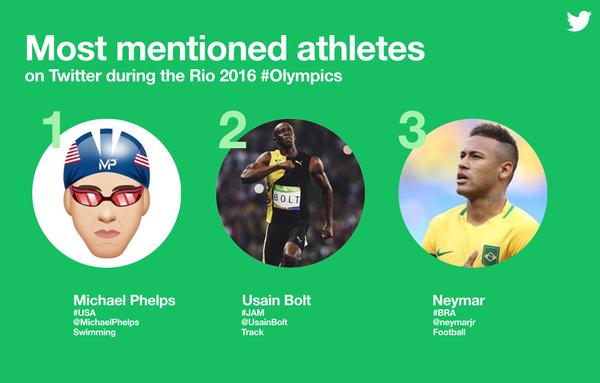
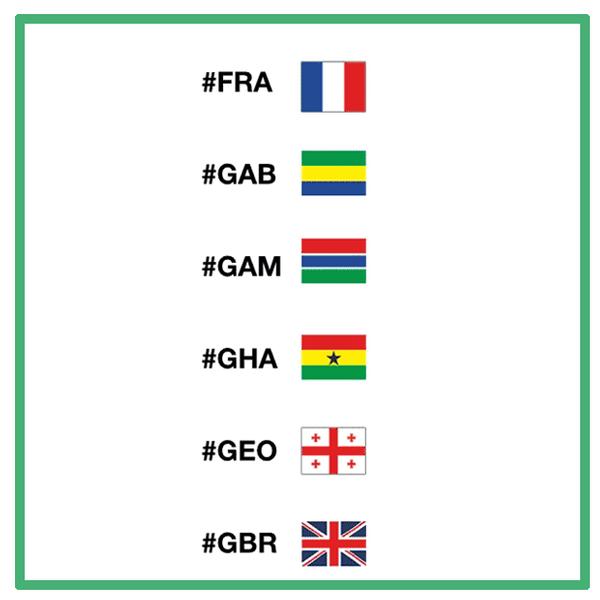
FACEBOOK & INSTAGRAM
Facebook and Instagram used their new video capabilities to engage users
The biggest advance Facebook has made in the four years since London 2012 is the way it has embraced video. That meant during Rio 2016, fans could share and view medal-winning footage and other highlights on their timelines.
On a corporate level, Facebook was keen to engage official broadcasters. It teamed up with more than 20 licensed TV companies and National Olympic Committees in order to secure firsthand content for its website and its photo platform Instagram.
In the US, Facebook struck a deal with NBC – the rights holder for the Olympic coverage – which saw the official broadcaster publish exclusive highlights directly to Facebook and Instagram.
Interestingly, NBC – along with many other broadcasters – also tapped into Facebook Live, the live-streaming video tool, transmitting interviews with athletes and commentators directly to Facebook. NBC also partnered Facebook for the creation of a “Social Command Center” on-site in Rio, which saw NBC producers capture Facebook Live content, including interviews with NBC commentators and athletes. However, NBC limited actual competition footage to the broadcast networks.
According to Gary Zenkel, president of NBC Olympics, the move was about reaching out and bringing in new viewers for the NBC coverage. “The partnership was about fueling the Olympic conversation and driving interest in watching the Games,” he said. “And it’s a natural outgrowth of our mission to share the stories behind the athletes.”
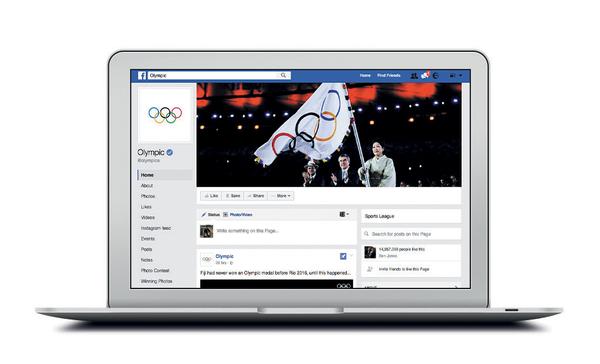
Olympic stats were given alongside every search, while Street View gave 360º feeds
Search giant Google added several new features for Rio 2016 which allowed users easy access to information about the competition.
During the two weeks of the Games, Olympic-related searches on Google automatically brought up event schedules, medal counts, athlete information, and TV schedules alongside other searches.
Google Maps was also enhanced and put into Games mode, thanks to a pioneering partnership between Rio 2016 and Google. Users were able to virtually explore different parts of Rio de Janeiro and the Olympic venues by ‘entering’ the venues via Google Street View, where they could get a 360-degree view of the stadiums, arenas and pools.
To capture the footage, Google used its ‘Trekker’ – a 18kg backpack, fitted with 15 sophisticated cameras and carried around the venues by a technician.
“Street View gave users a chance to see the venues from the same perspective athletes had during the Games,” said Rio 2016 comms director Adriana Garcia.
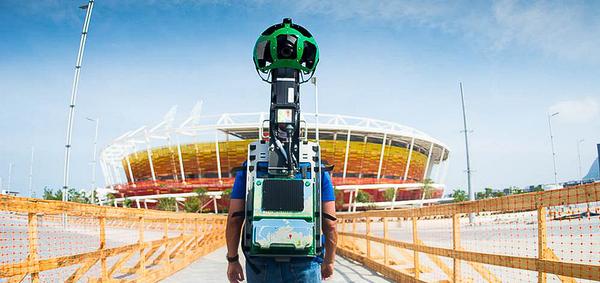
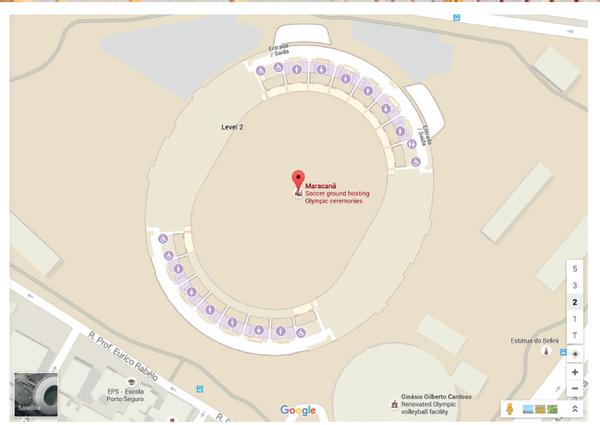
Snapchat
Rio 2016 launched a Snapchat account which followed the Olympic Torch relay
While final engagement and viewer figures were still to be confirmed at the time of going to press, it was clear one of the newer kids on the social media block had performed well on its Olympic debut. During the first seven days of the Olympics, 49 million viewers had turned to image messaging platform Snapchat to watch some form of coverage from the various sporting event.
During Rio, Snapchat’s Live Stories option – compilations of “Snaps” from users which disappear after 24 hours – showcased video snippets of sporting action and crowd reaction, adding a unique take on the more traditional competition footage.
While Snapchat secured a deal with NBC to post licensed content on its Discover section, its biggest coup was signing an agreement with the Rio Organising Committee. The deal meant Rio 2016 launched an official Snapchat account which followed the Olympic Torch Relay across Brazil. As the Games began, the coverage switched to a first-hand look at the “mood” of being in Rio every day.

Duty Manager
Team Leader (Harrow School Fitness Club)
Centre Manager (Leisure)
Director of Operations
Fitness Motivator
Recreation Assistant/Lifeguard (NPLQ required)
Membership Manager
Recreation Assistant
Swim Teacher
Swim Teacher
Chief Executive Officer, Mount Batten Centre
Swim Teacher
Swimming Teacher
Swimming Teacher
Company profile
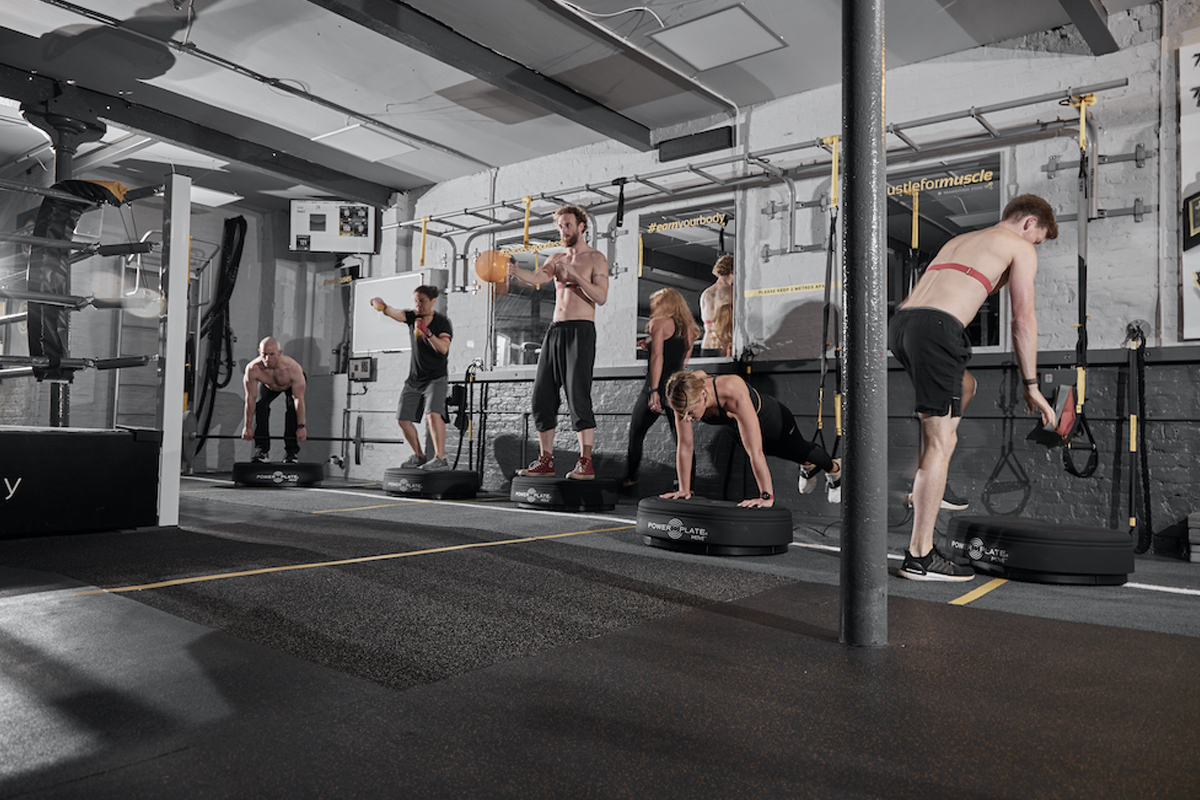
Featured Supplier

Property & Tenders
Company: Knight Frank
Company: Belvoir Castle
Company: AVISON YOUNG
Company: London Borough of Bexley
Company: Forestry England














